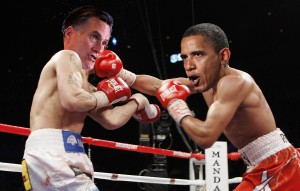By Ricardo Torres Political parties push their agendas to fool the public and advance their way into power. The media is flooded with attack ads as Democrats and Republicans mudsling as the election draws near.
Professor William Davis, political science expert at CSN, explains that over the last 50 years, people have become less interested in politics. “I think people are trying to escape from the barrage of political information.”
Though the general trend of voter interest is on decline when compared to decades past, according to Davis, he says that some have fervent partisanship that comes from a strong psychological attachment to a political party.
“When I was younger, the mainstream media presented the news as something different, something serious,” says Alan Balboni, who has a doctorate from Brown University and has been teaching political science at CSN for over 30 years. “What we see now is that the media is highly partisan.”
Both Professors Davis and Balboni acknowledge that many who do not follow politics closely can fall prey to certain fallacies, and be easily swayed and manipulated in elections. “[People] are not skeptical enough about what they read and hear,” Davis says.
A significant number of students simply don’t want to deal with politics. “For a lot of students…it’s a turn off, it’s just too partisan, too noisy, too extreme,” Balboni says.
When discussing current events and politics in their classes, both Davis and Balboni offer their students ways to increase their knowledge to stay better informed. There is a need to use critical thinking to discern good information to make educated choices.
Davis encourages his students to deeply evaluate their positions. “I don’t care which side they come down on, as long as they know their own mind, why they believe what they do, and [they] can argue it,” Davis says.
Balboni provides his students resources and encourages them to seek out alternative viewpoints in the news. As most people know, some news stations have strong agendas. By looking at many viewpoints, with a critical eye, students can discern more newsworthy information.
“What I tell my students is [that] there is no ideal source. You need to go to a variety of sources,” Balboni says. Sifting through the mudslinging isn’t always easy, but it is necessary for an educated electorate.




